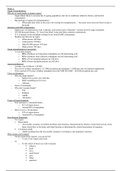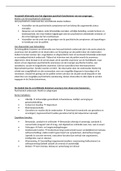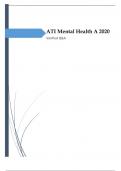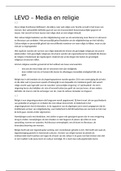Study guide
Organ Transplantation
- Vak
- Instelling
- Boek
Lecture notes, textbook notes, academic articles and class notes on organ transplantation. From the London School of Economics and Political Science. Emily Jackson textbook and lecture notes. Ideal for medical law exams and essays! In-depth notes to succeed :) From a top 2:1/1st class student. Go...
[Meer zien]













